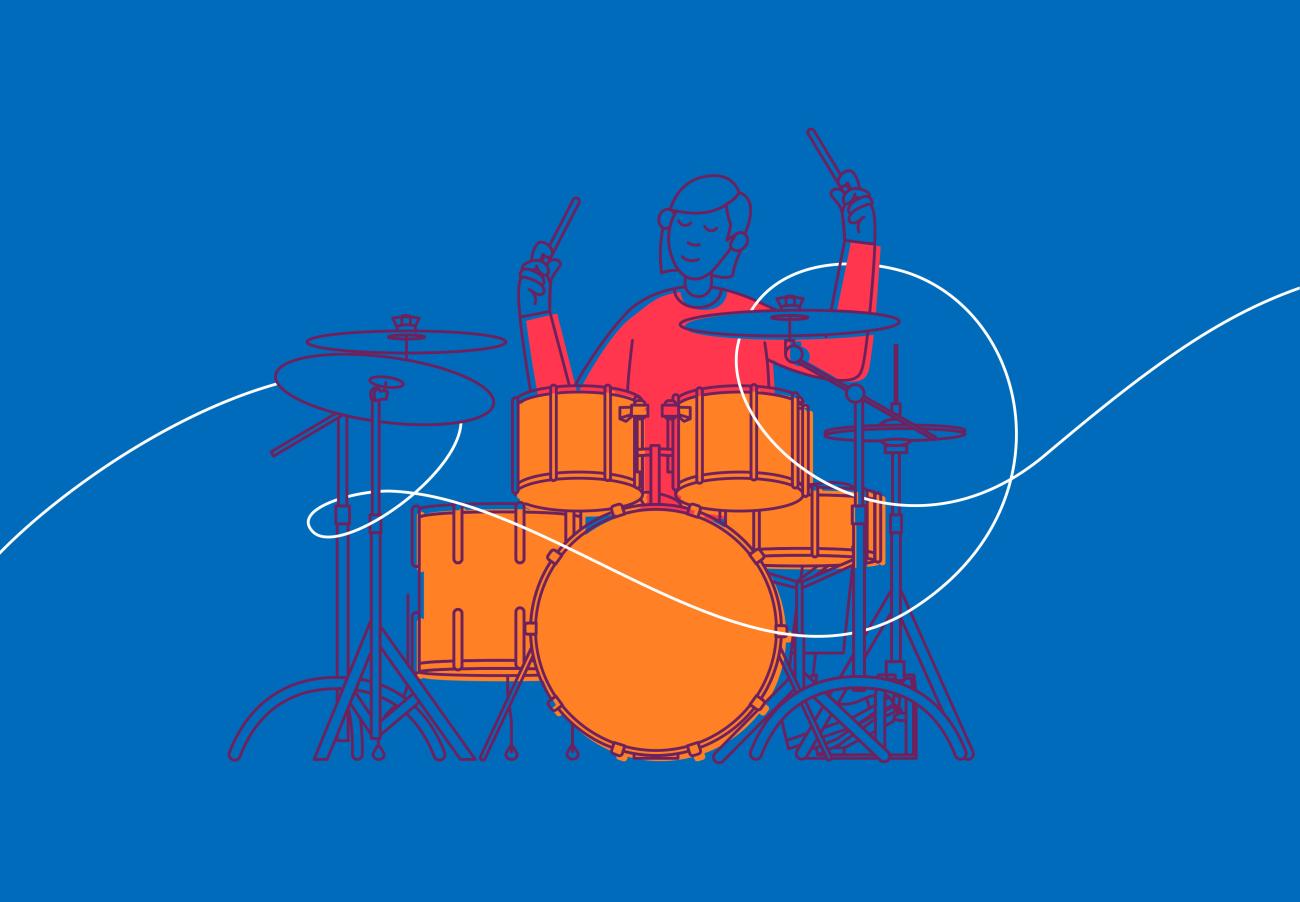Awards for Young Musicians – finding that spark

Awards for Young Musicians (AYM) is a UK charity that supports talented young people from low-income families. Their programmes help young musicians to fulfil their potential while also helping others to identify and nurture talent.
AYM’s Identifying Musical Talent and Potential (ITP) programme began a new phase in 2022 and since then has reached over 1,000 music leaders across England. We asked AYM’s Lead Facilitator, Hugh Nankivell, to tell us more about his role and the programme itself.
Tell us about your musical background and how this work fits into it?
 I’m a social musician based in Bristol. I was lucky enough to have instrumental lessons as a child but was also encouraged to engage in many kinds of music-making and listening, including jazz, folk, pop, bellringing and improvising. I was fortunate to have inspiring and creative teachers and mentors, and started composing and music leading in my teens.
I’m a social musician based in Bristol. I was lucky enough to have instrumental lessons as a child but was also encouraged to engage in many kinds of music-making and listening, including jazz, folk, pop, bellringing and improvising. I was fortunate to have inspiring and creative teachers and mentors, and started composing and music leading in my teens.
I’ve worked as a freelance musician on myriad projects – mainly community and collaborative. In addition to my work with AYM I’m also a Bournemouth Symphony Orchestra Associate, leading work with people living with dementia, early years and family orchestras.
This eclectic background has provided me with a curious approach to music making that’s creative, diverse and reflective. My practice has developed alongside the AYM ITP work and both have informed each other.
How and why did the ITP programme come about?
About fifteen years ago I was working with a number of organisations in the southwest of England and it was through them that I met AYM who wanted to pilot some new work around identifying musical potential. I was able to suggest some approaches for group sessions. AYM took the bold step of funding these sessions and the project has developed since that time.
The ITP programme exists to help redress the inequity some young people face in accessing musical opportunities. We know that due to family circumstances, culture or background, some children don’t show obvious potential due to lack of musical experience and opportunity.
The programme is closely aligned to England’s National Plan for Music Education and its vision to enable “all children and young people to learn to sing, play an instrument and create music together, and have the opportunity to progress their musical interests and talents, including professionally”. It combines an inclusive classroom approach with our Eight Facets of Musical Potential framework which can give teachers and music educators a different lens through which to spot the potential.
How does the inclusive approach and Eight Facets of Musical Potential work?
The starting point for this work has been: How - if you only ever have a group of people as opposed to a one-to-one relationship - can you identify musical potential in that group and what can you then do with that information? It’s about giving every person an opportunity to thrive and engage in meaningful musical practice.
The Eight Facets of Musical Potential have been instrumental in altering the thinking from identifying people through already acquired skills to using a more fundamental set of criteria to do with how people engage and enjoy participating in musical activity.
Where do you see the next area of development for the programme?
The work we do on the programme is essentially provocative. Its inclusive approach advocates for time and space in lessons to be creative and curious, for children to have agency over the instruments they play and the sounds they make, and for us as educators to take the time to really observe what’s happening.
We’re questioning some established approaches and asking teachers to think about what their teaching achieves for everyone in the class. We’re aware that it’s had quite an impact on music leaders and it feels important to me that we’re able to continue to engage with teachers who are transforming their work, alongside broadening our reach further.
Find out more about the Identifying Musical Talent and Potential programme
The training is free in England thanks to AYM’s Arts Council National Portfolio Organisation funding. It is delivered via schools, music hubs, multi-academy trusts and other organisations working with young people or training teachers and music leaders. Available as an online session or in person, it’s a practical, informative and thought-provoking session run by two of AYM’s facilitators.
You can find more information on the AYM website: Identifying Musical Talent and Potential programme
Photos: Matthew Tiller

